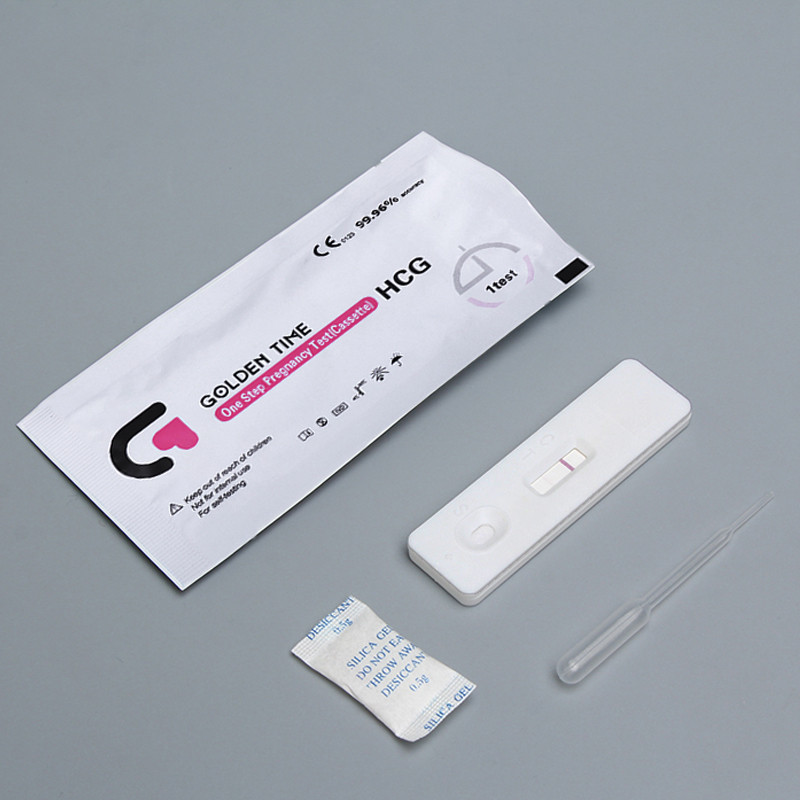Oct . 12, 2024 19:31 Back to list
Understanding the HCG Test Strips for Pregnancy Detection and Monitoring Levels
Understanding HCG Test Strips Your Guide to Home Pregnancy Testing
Pregnancy testing has come a long way since the early days when women had to rely on complicated methods or visits to health professionals. Today, HCG test strips have made it incredibly easy and convenient for women to confirm pregnancy in the comfort of their own homes. In this article, we will explore what HCG test strips are, how they work, and some important considerations for accurate testing.
What is HCG?
HCG, or human chorionic gonadotropin, is a hormone produced by the placenta shortly after a fertilized egg attaches to the uterine lining. This hormone plays a crucial role in maintaining pregnancy, and its levels rise rapidly during the first trimester. It is the presence of HCG in a woman’s urine that HCG test strips are designed to detect.
How Do HCG Test Strips Work?
HCG test strips are designed to detect the presence of HCG in urine. The mechanism is straightforward
1. Urine Collection Users can either urinate directly on the test strip or collect urine in a clean container and dip the strip into it. 2. Chemical Reaction The strip is coated with antibodies that react with HCG. If HCG is present in the urine, it binds to these antibodies and causes a visible change on the test strip.
3. Result Interpretation Typically, test strips exhibit a control line and a test line. A control line ensures the test is functioning correctly, while a test line indicates a positive result. If only the control line appears, the test is negative.
When to Test
Timing is crucial when using HCG test strips. It’s generally recommended to test after a missed period for the most accurate results. Some strips claim to provide results as early as a few days before the expected period, but testing too early may yield false negatives due to insufficient HCG levels.
For the best accuracy, testing with the first morning urine is advised. This urine is usually more concentrated and thus has higher levels of HCG, which can improve the chances of detecting pregnancy early.
hcg test strips

Accuracy and Reliability
While HCG test strips provide a convenient option for pregnancy testing, their accuracy can depend on several factors
- Sensitivity Different test strips have different sensitivity levels. Highly sensitive test strips can detect lower levels of HCG and may provide accurate results earlier. - User Error Following the instructions carefully is crucial. Misinterpreting results can lead to confusion. Always check the expiration date of the test and ensure it’s stored in a cool, dry place.
- Dilution of Urine If the urine is diluted (e.g., drinking large quantities of fluid before testing), it may result in lower HCG concentration, leading to potential false negatives.
Limitations of HCG Test Strips
While HCG test strips are a valuable tool, they are not infallible. Here are some limitations to consider
- False Negatives Testing too early or diluted urine can result in a false negative. - False Positives Though rare, false positives can occur, often due to chemical pregnancies or certain medical conditions.
- Pregnancy Complications In some cases, HCG levels can be abnormally low or high, indicating potential problems like ectopic pregnancy or other complications. If there’s any doubt, it’s essential to consult a healthcare professional.
Conclusion
HCG test strips have revolutionized how women can test for pregnancy. Their convenience, accessibility, and ease of use make them a popular choice for many. While they offer a reliable indication of pregnancy, it’s important to use them correctly and follow up with a healthcare provider for further confirmation and guidance if needed. Whether you're trying to conceive or suspect you might be pregnant, HCG test strips provide a first step in the exciting journey of pregnancy.
-
Malaria Pf Ag Rapid Test Kit - Quick & Accurate Detection
NewsAug.11,2025
-
Accurate Cardiac Marker CK-MB Rapid Test for Quick Results
NewsAug.10,2025
-
Premium Empty ABS Plastic Cassette for Test Strips
NewsAug.09,2025
-
Sterile Urine Cup: Accurate Specimen Collection for Labs & Home
NewsAug.08,2025
-
Malaria Pf/Pan Ag Rapid Test Kit for Fast, Accurate Diagnosis
NewsAug.07,2025
-
Rapid Canine Corona Test: Fast & Accurate Results
NewsAug.06,2025

